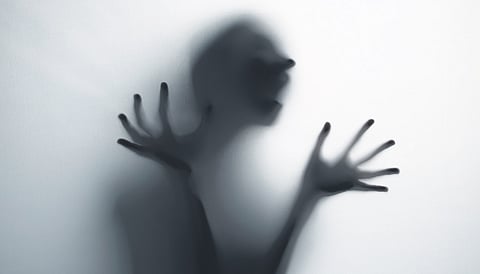

KOCHI: Severe psychotic disorders affect less than 1 per cent of the population. Those with a predisposition for aggressive behaviour make up less than 5 per cent of this group. However, portrayals of violent ‘psycho’ characters in films and web series often perpetuate the myth that individuals with mental disorders are inherently dangerous.
Sensationalised reports of isolated incidents of violence further fuel stigma. Aggression in persons with mental disorders typically occurs when symptoms are ignored or treatment is discontinued, and often only when triggered by specific situational factors.
Genesis of aggression
Violence in mental illness arises from psychopathology. For example:
A person with psychosis may act aggressively as a defensive strategy if they harbour the false belief that others are trying to harm or kill them.
Someone with schizophrenia experiencing hallucinations that command them to attack might act based on such delusions.
A manic individual, driven by grandiosity and irritability, may easily provoke quarrels with others.
What is the usual public reaction to a person with mental disorder reacting violently in public? Adverse comments or gestures. This will only add fire to psychotic fury. Many fail to recognise that they are dealing with an individual suffering from a neurobiological condition.
De-escalate and facilitate treatment
Aggression in such situations stems from symptoms of a disorder. Some individuals refuse treatment because they do not accept that they have a psychiatric condition. This can lead to behaviours that endanger themselves or others. To prevent harm, urgent treatment is essential.
When a person loses the capacity for decision-making, it is the duty of their family or community to ensure treatment, even against their will, as part of their right to quality care. The Mental Health Care Act provides for supported and emergency admissions in such cases. Hesitancy to act often results in preventable violent incidents.
However, all such admissions and treatments must be scrutinised by statutory bodies to prevent misuse and protect human rights. Mental health review boards, chaired by judicial officers, function in Thiruvananthapuram, Kottayam, Thrissur, Kozhikode, and Kannur for this purpose.
Tips to tackle
A person harbouring delusional fears may become suspicious of anyone approaching them. Threatening stimuli can provoke defensive aggression. The following steps can help de-escalate the situation:
Listen without engaging in an argument
Use a calm, soothing tone of voice
Avoid provocation or confrontation
Adopt a positive and friendly attitude
Express concern for the individual’s well-being
Offer food or drink
Distract with a positive activity
Remove dangerous objects from the area
Use verbal redirection and set boundaries
Maintain close observation
Ensure personal safety and be prepared to apply physical force if necessary
Important to avoid
Large gathering of onlookers
Unpleasant or chaotic surroundings
Loud or irritating noises
Intimidating eye contact
Unnecessary invasion of personal space
Confrontational or threatening gestures/messages
Role of police
When a person with a mental disorder refuses treatment and poses a threat to themselves or others, the police can initiate proceedings for their admission to a public mental health establishment as per the Mental Health Care Act.
The police can also report cases of ill-treatment or neglect of mentally ill individuals to the magistrate, who can order their admission and treatment. Relatives or citizens can approach the police for assistance in securing professional help for an unwilling individual.
Educating relatives about the illness is crucial. Practices like chaining, locking up, or dismissing the disorder as mere bad behaviour and depriving treatment are illegal. Police officers must be trained to handle such situations sensitively.
Treat with dignity
Symptoms of mental illness, no matter how embarrassing, can be controlled with treatment. Once individuals gain insight, they often understand the necessity of forced intervention during their illness. However, their past aggressive behaviour should not lead to stigma or marginalisation. They deserve to be treated with dignity.
The writer is senior psychiatrist at Medical Trust Hospital, Kochi, and former member of the State Mental Health Authority